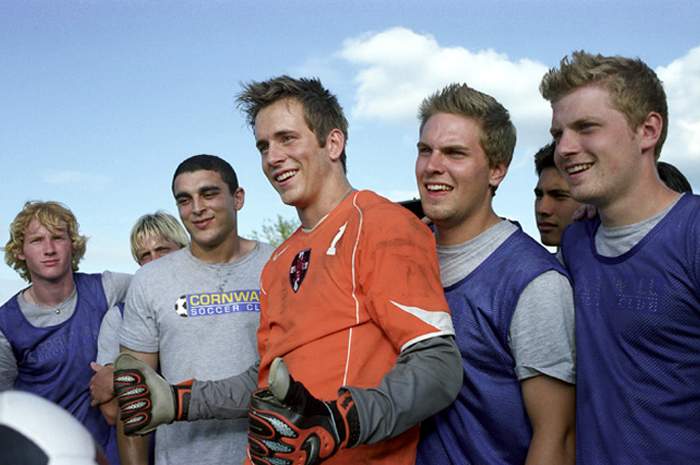In a perfect world, any modern adaptation of a Shakespeare play would take the latent queerness in the work and run with it. Many productions have done this, particularly for the stage, and many haven't. She's the Man has ample opportunity to be one of the former, and it passes up every one in favor of adhering to rigid constructions of gender and sexuality, sacrificing progressiveness for a reliance on jokes rooted in harmful binaries.
The list of mismanaged moments in the film is not short, but perhaps the crowning piece of heteronormativity comes during the climax of the film – the use of characters' anatomy as definitive proof of their gender identities.
In the nineties, this kind of conflation of physical sex and gender might have gotten a pass for being an artifact of its time. But She's the Man came out in 2006, and by then even Gender Trouble had been around long enough to start seeming problematic in light of the growing collective understanding of theory in queer communities. In any case, people involved with She's the Man knew about passing on a budget, packing with socks and binding with ace bandages; presumably, in their research on FTM presentation, they would have come across the idea that anatomy does not, in fact, dictate gender identity.
After all, these strategies for passing exist as a means of circumventing physical and social gender dysphoria – intense discomfort or trauma inspired by a person's anatomy not 'matching' with their experienced gender identity. The source of dysphoria varies; it can come from a personal feeling of wrongness in one's own body, or from social interactions hinging on assumptions of gender made by others. It's often an indicator of a trans identity for the people who experience it.
In a more radical world, 'Sebastian' having breasts would imply nothing about his gender identity one way or the other. The film certainly had any number of chances to be transgressive in that vein, and to bring little scraps of queer theory into the mainstream. Instead, the script manages to make even a film about a female-identified person learning to feel confident presenting male a travesty of binaries and outdated assumptions about gendered bodies.















